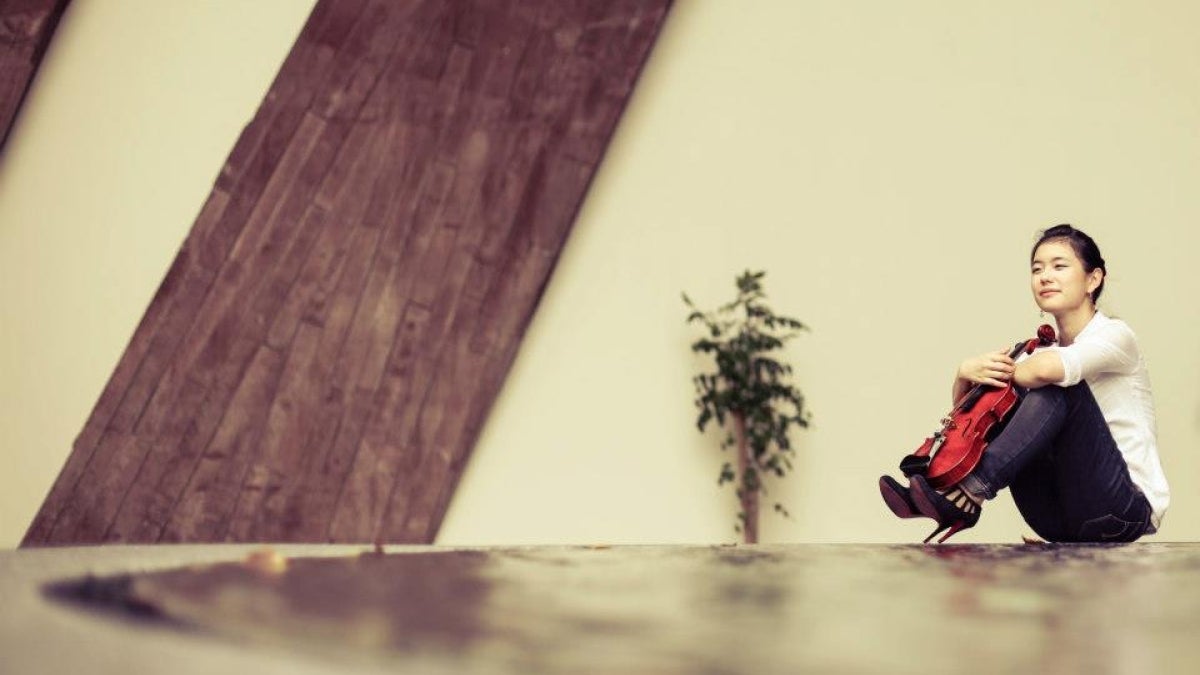Editor’s note: This is part of a series of profiles for fall 2017 commencement. See more graduates here.
Tee Tong Tang has such a love of the violin that she will devote her career to teaching young people how to play.
On Monday, Tang earned a doctorate in music arts in performance from the Herberger Institute for Design and the Arts, where she was named the Outstanding Graduate Student.
Tang’s path did not lead straight to Herberger. She played the violin since she was 4 years old, but when it came time to go to university in her native Singapore, she chose engineering.
“I was good at my studies, and I thought I would do music as a hobby,” she said.
So she taught violin on the side while studying engineering. But after she earned her degree, “I realized I really wanted to teach violin at a higher level. I wanted to get better at it.”
So she followed her passion and came to ASU, which she chose so she could study with Jonathan Ward Swartz, professor in the School of Music. She earned a master’s degree at ASU before pursuing her doctorate.
For her thesis, Tang developed a violin curriculum, which will she use when she moves back to Singapore and begins her teaching career. Her method combines visual, kinesthetic and aural learning.
“When I was taught, I was taught very visually, so I lacked aural and skills. Then I came here and worked with my teacher, who is very kinesthetic, so I had to practice a lot in front of the mirror,” she said. “I didn’t feel my body or the movement.
“So it’s very important to teach all of these.”
Tang has taught young people at every age group, but she especially enjoys teaching teenagers.
“It takes time to build that relationship. You have to figure out what makes them tick, but once they trust you, they will do anything you say,” she said.
Tang answered some questions from ASU Now:
Question: What was your “aha” moment, when you realized you wanted to study the field you majored in?
Answer: I started learning the violin at a young age and although I never stopped performing and teaching, I took an engineering route in college. There were many factors that made me realize that I needed to pursue music after my graduating with my engineering degree, and one such experience was teaching group violin classes at a facility for youths in at-risk situations. This experience made me realize the power of music and the arts after seeing how it successfully created a musical community, brought so much joy to the youths and helped build their discipline and confidence.
Q: What’s something you learned during your studies that surprised you or changed your perspective?
A: Prior to my studies, I was always self-limiting and had a warped belief of things I can or cannot achieve. After working with faculty members at the School of Music, I was able to change this mentality and constantly challenge myself.
Q: What advice would you give to those still in school?
A: Take as many classes as possible that you might be interested in as long as your schedule or finances allow for it, even if it’s not required or seems totally irrelevant. Sometimes those are the classes that help you discover something about yourself and your future possibilities; at worst, it’ll give your mind a break from your focus subjects.
Q: What was your favorite spot for studying and why?
A: King Coffee/Cartel! I would love to be able to study at home, but I get highly distracted and being at these cafes help me focus on my tasks.
Q: If someone gave you $40 million to solve one problem on our planet, what would you tackle?
A: Many problems in this world can be solved if human beings have more empathy and are less self-centered. Using music as a means, so much can be done so I would say building music programs with the mission of building communities as well as character in the new generations and beyond.
Top photo: Tee Tong Tang was named the Outstanding Graduate Student by the Herberger Institute for Design and the Arts. Contributed photo
More Arts, humanities and education
AI literacy course prepares ASU students to set cultural norms for new technology
As the use of artificial intelligence spreads rapidly to every discipline at Arizona State University, it’s essential for students to understand how to ethically wield this powerful technology.Lance…

Grand Canyon National Park superintendent visits ASU, shares about efforts to welcome Indigenous voices back into the park
There are 11 tribes who have historic connections to the land and resources in the Grand Canyon National Park. Sadly, when the park was created, many were forced from those lands, sometimes at…
ASU film professor part of 'Cyberpunk' exhibit at Academy Museum in LA
Arizona State University filmmaker Alex Rivera sees cyberpunk as a perfect vehicle to represent the Latino experience.Cyberpunk is a subgenre of science fiction that explores the intersection of…
